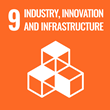Project information
European long-term ecosystem, critical zone and socio-ecological systems research infrastructure PLUS
(eLTER Plus)

- Project Identification
- 871128
- Project Period
- 4/2024 - 1/2026
- Investor / Pogramme / Project type
-
European Union
- Horizon 2020
- RI Research Infrastructures (Excellent Science)
- MU Faculty or unit
- Institute of Computer Science
- Cooperating Organization
-
University of Helsinki
- Responsible person Herbert Haubold
Progress in understanding, managing and securing current and future ecosystem functions and services is challenged by fragmented and dispersed ecosystem research, operated using narrow disciplinary perspectives that prevent a holistic understanding of complex eco- and socio-ecological systems. The emerging European Long-Term Ecosystem, critical zone and socio-ecological systems Research Infrastructure (eLTER RI) was evaluated by the European Strategy Forum on Research Infrastructures (ESFRI) as having high potential for closing this gap in the European RI landscape.
The primary objective of eLTER PLUS is to open and expand the research capacities and impact of eLTER by engaging current and new users and developing the operations of cross- and transdisciplinary research, exemplified in eLTER Site and Platform design and the RI’s Standard Observation framework. eLTER PLUS will execute a performance test of the emerging RI and assess and strengthen its operations in real time. It will further advance community building and provisioning of services as pursued by the H2020-funded eLTER INFRAIA Starting Community project and related projects. Its focus is on making intensive use of 35 selected sites and platforms in terrestrial, freshwater and coastal ecosystems, combined with observational data from an additional 50 sites, for studying ecosystem and socio-ecological responses to globally-relevant environmental challenges in terms of ecosystem integrity and ecosystem services. Its Whole-Systems approach will derive meaningful scientific and policy-relevant information via co-designed, transdisciplinary research in collaboration with diverse stakeholders at local, regional and EU-scales. Concerted actions also focus on collaboration with peer RIs to maximize synergies, increase efficiencies and catalyze holistic understanding of ecosystem function, and on development of virtual laboratories where in-situ site data are linked with other data sources, e.g. Copernicus.
Sustainable Development Goals
Masaryk University is committed to the UN Sustainable Development Goals, which aim to improve the conditions and quality of life on our planet by 2030.
